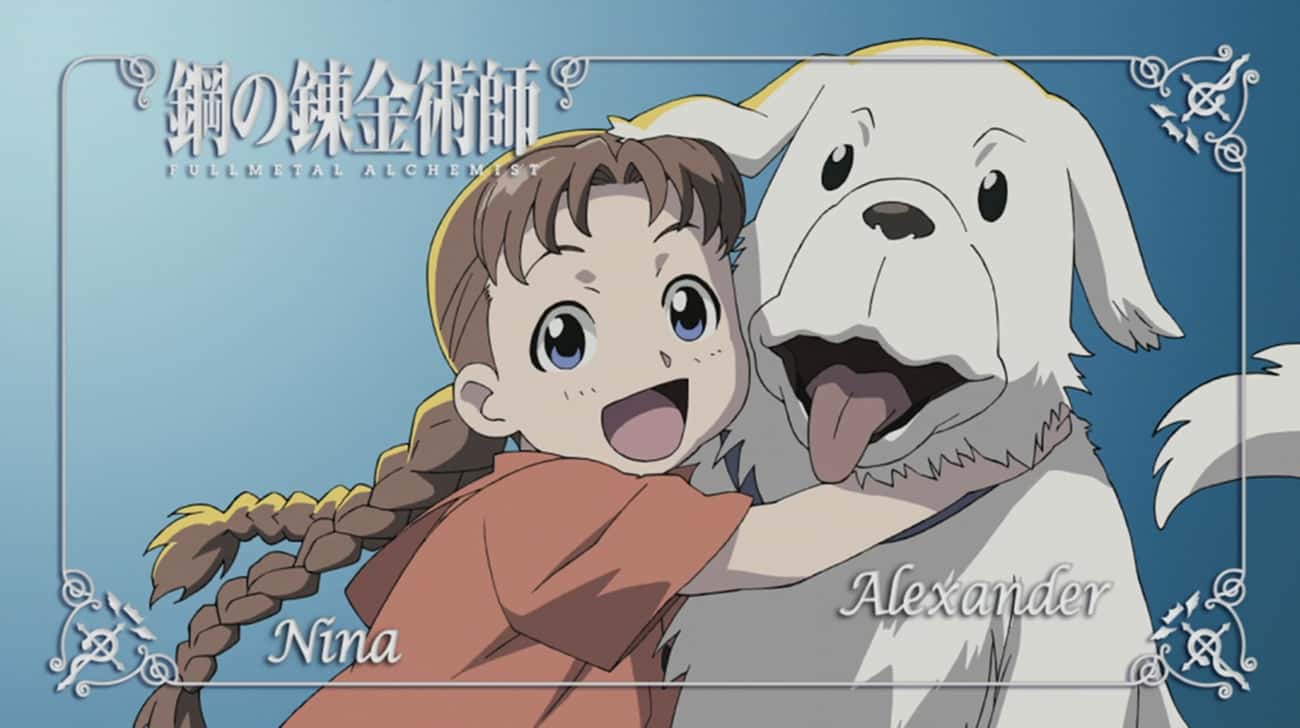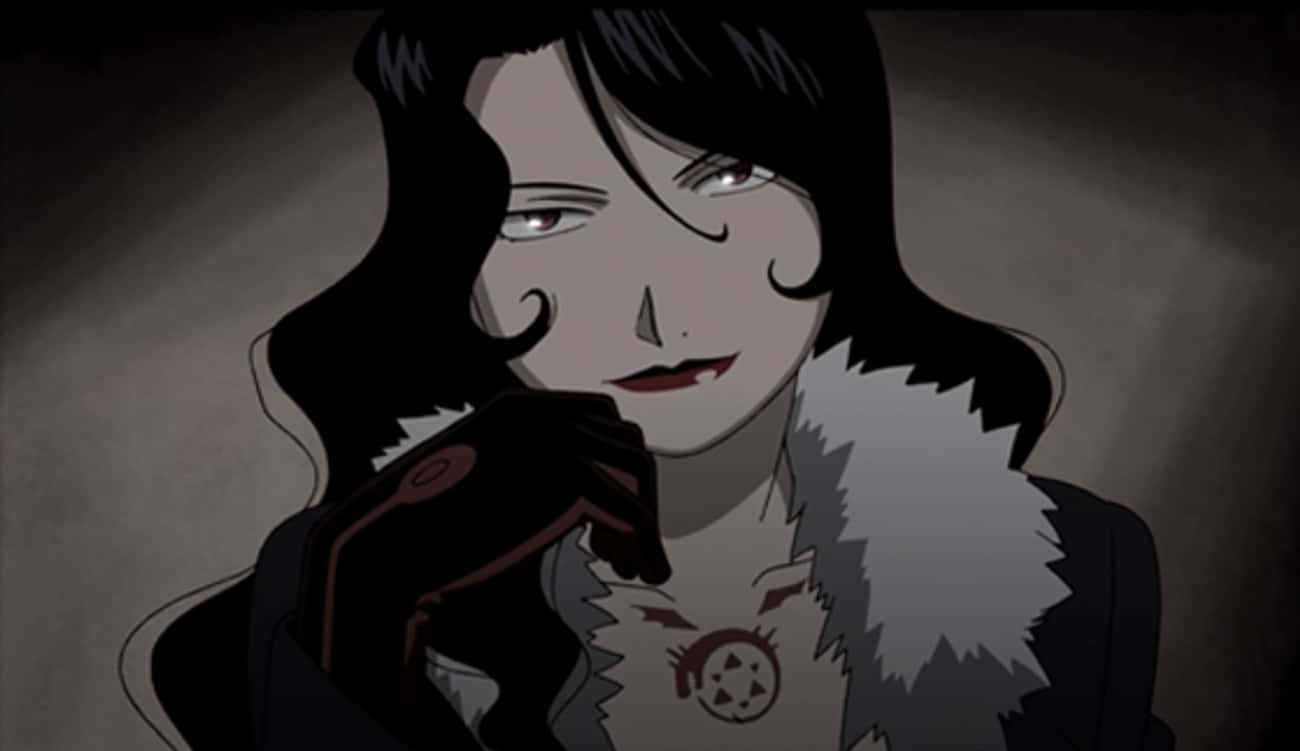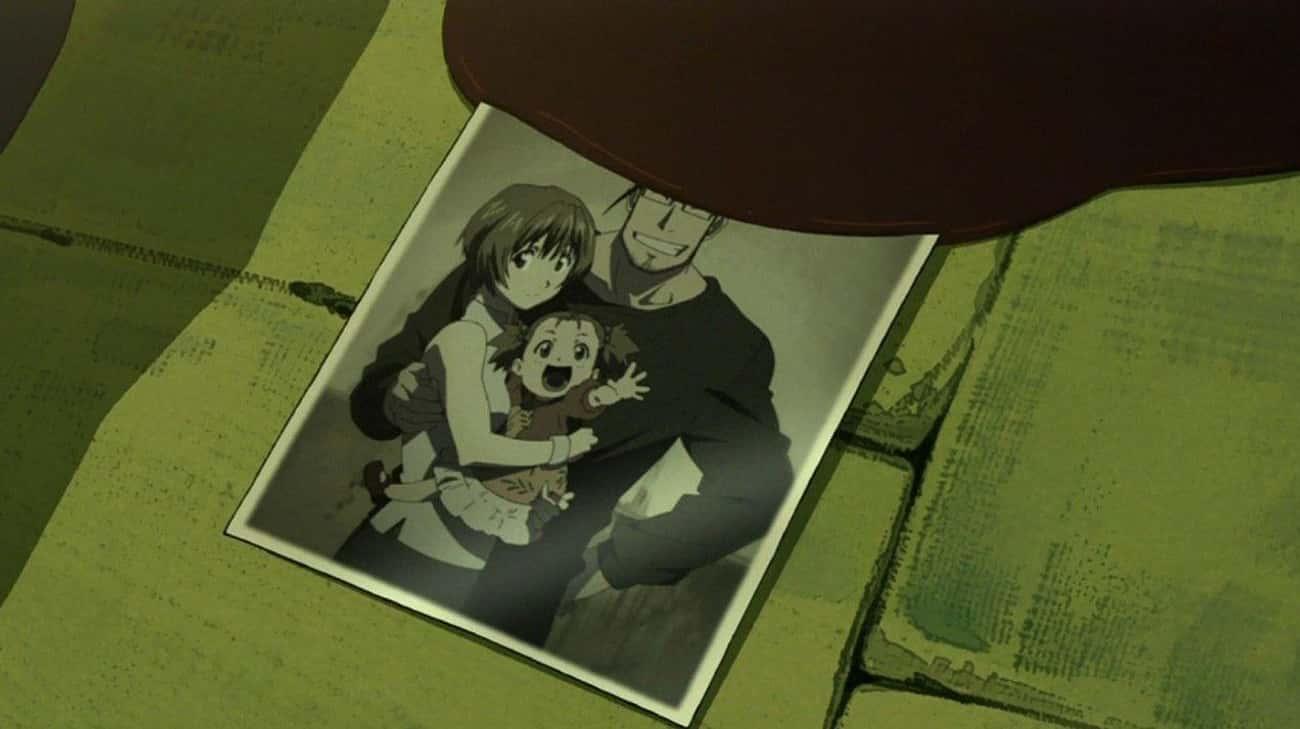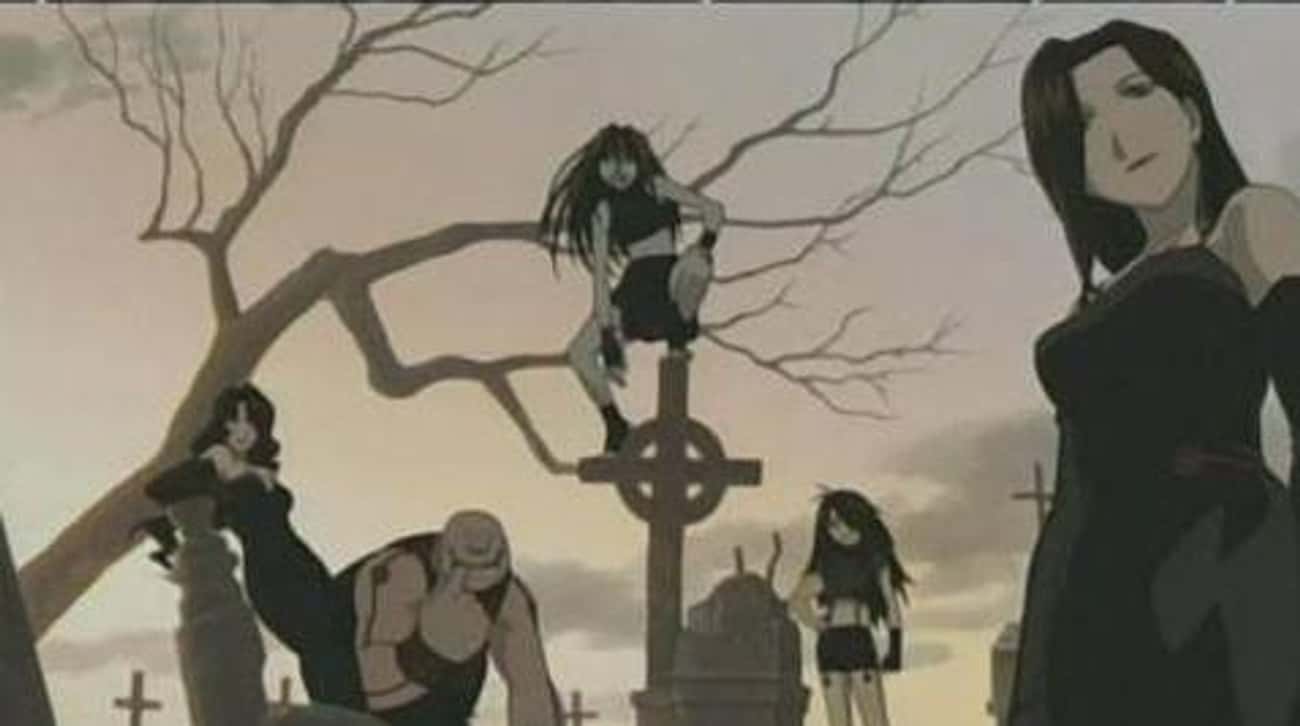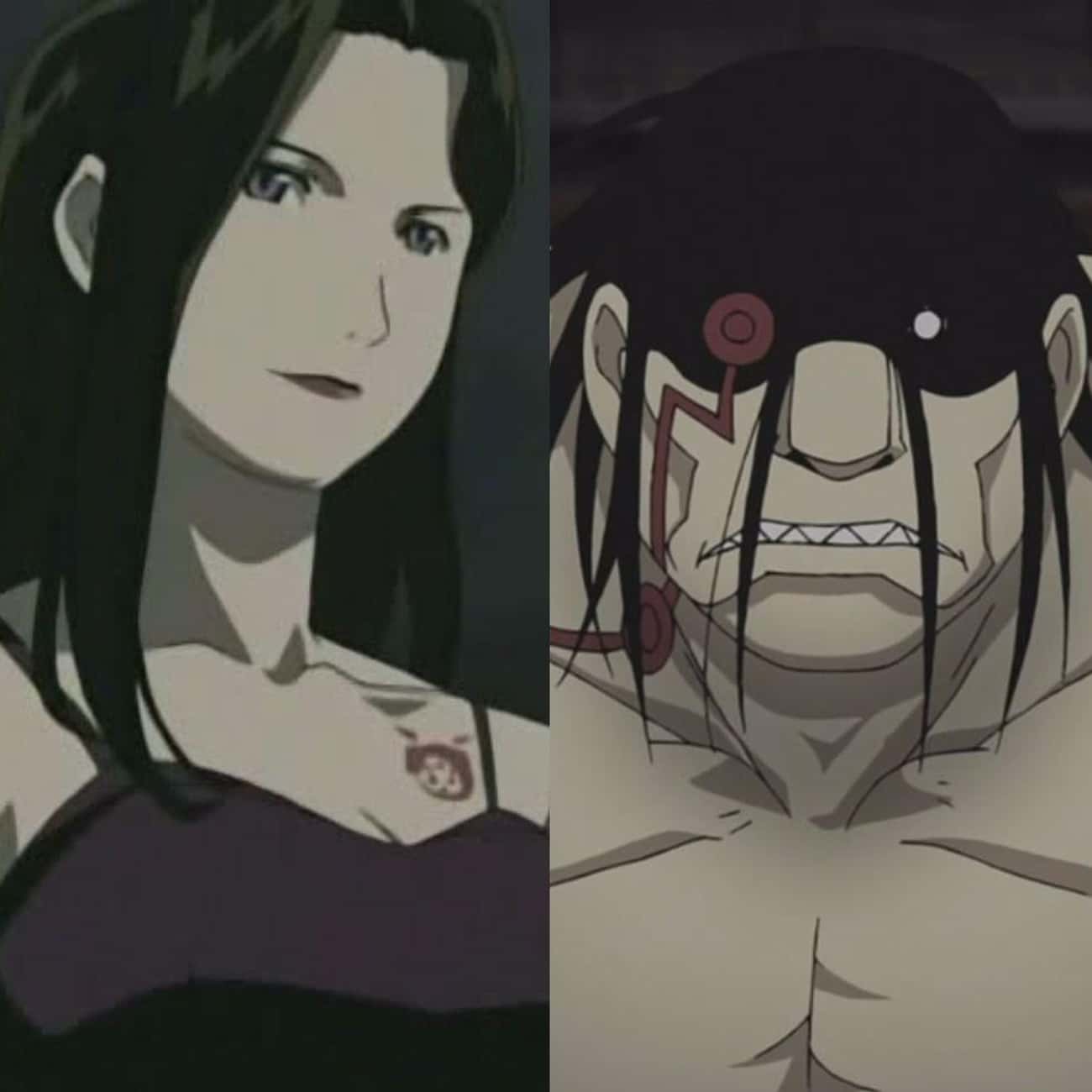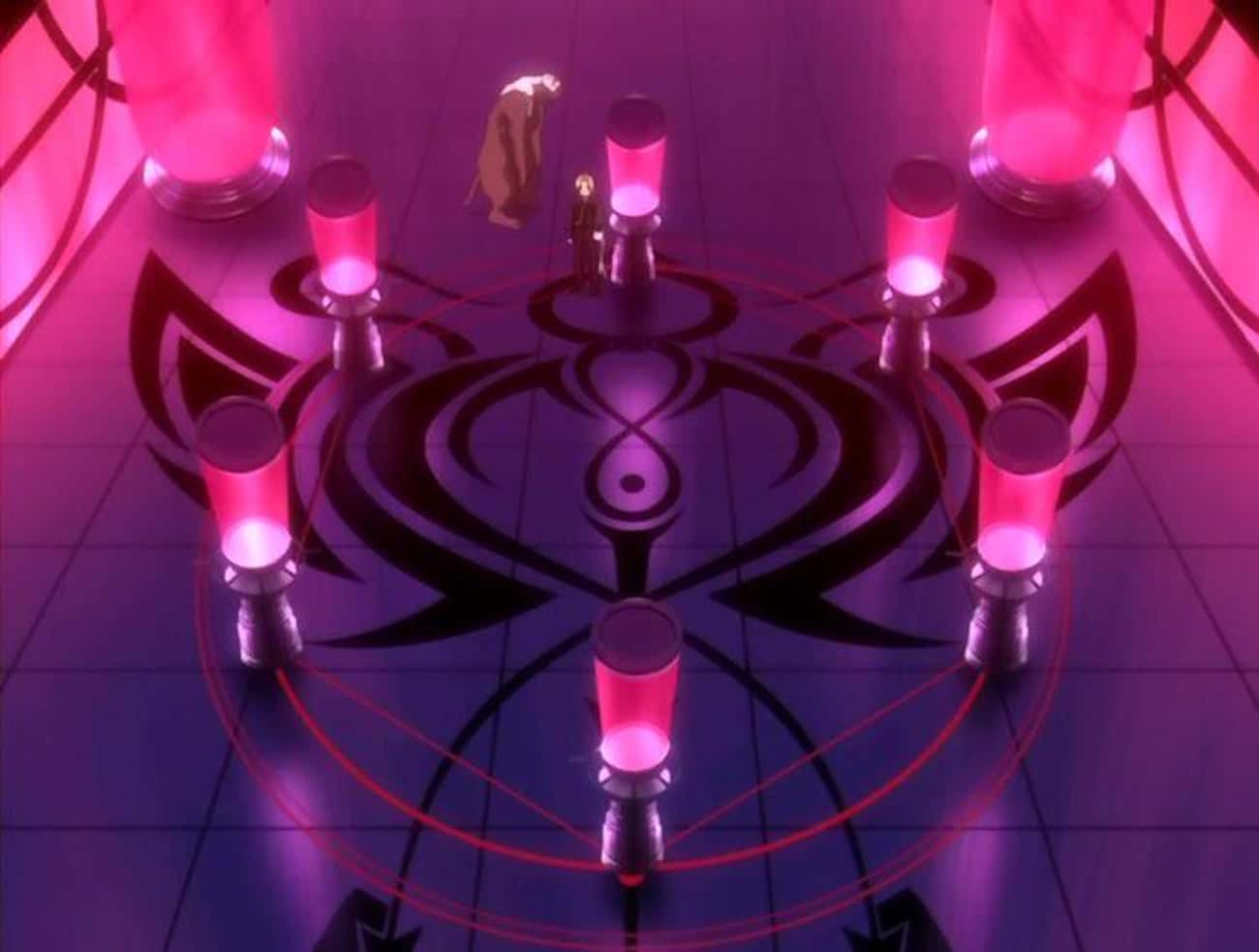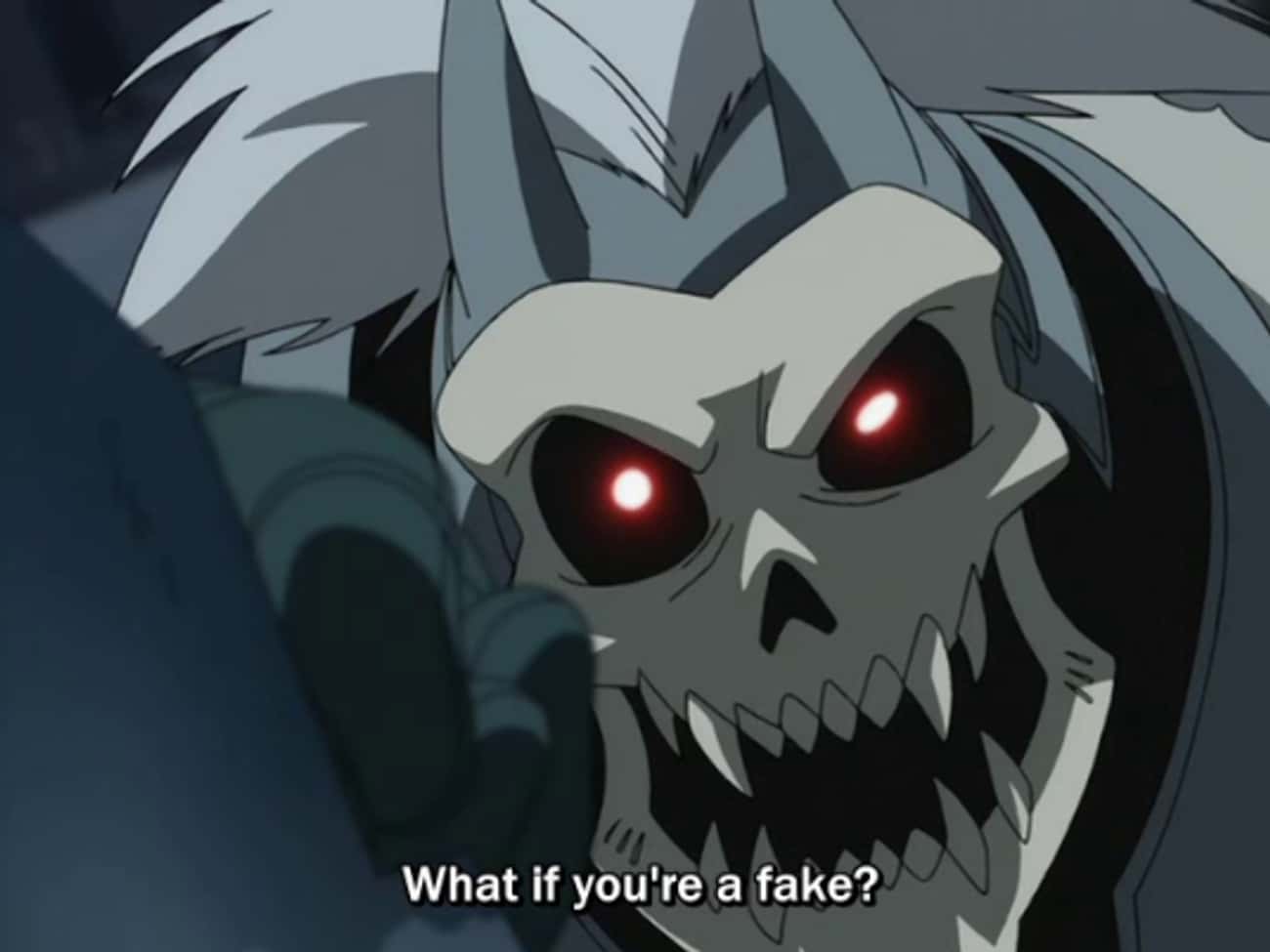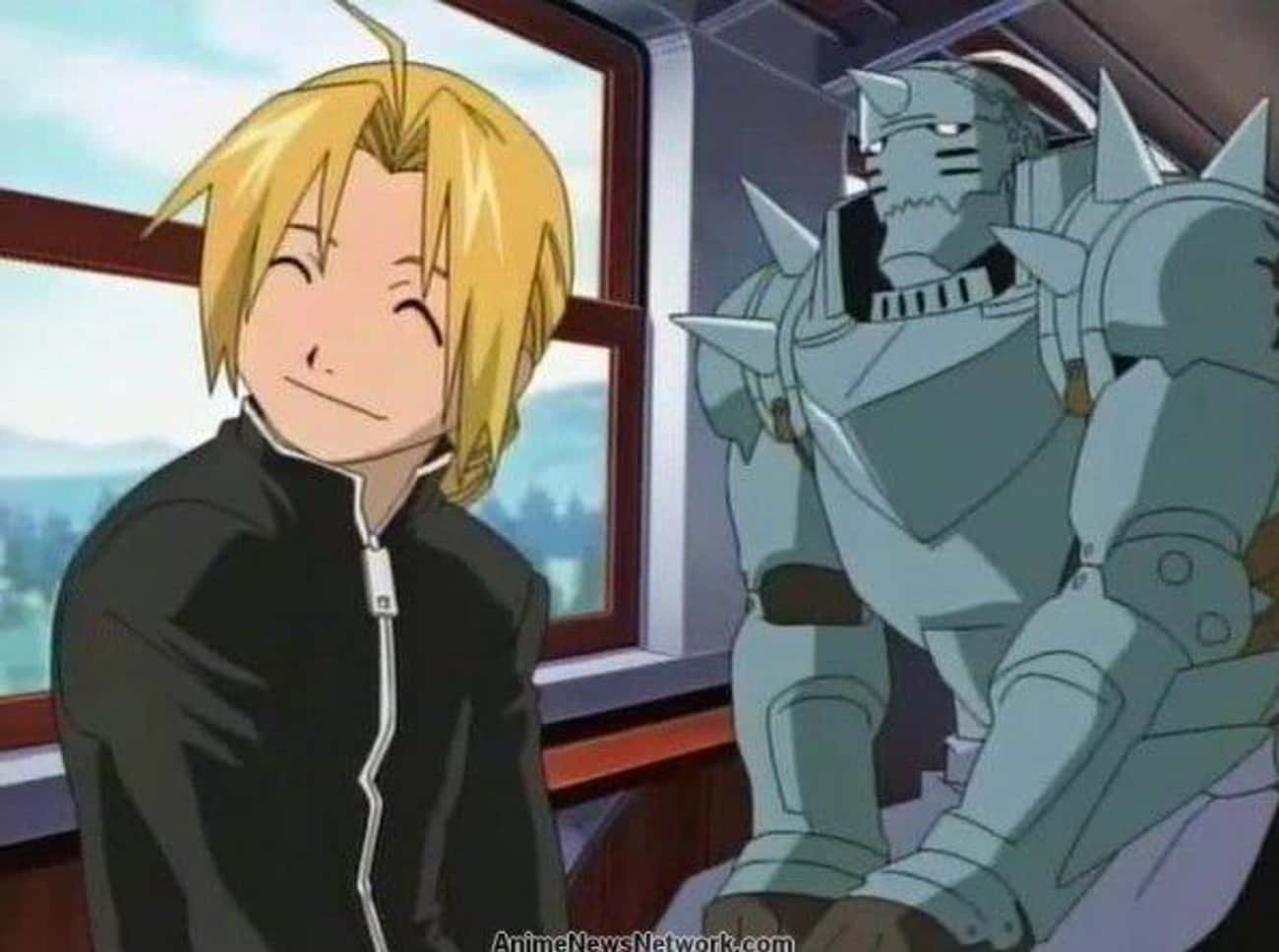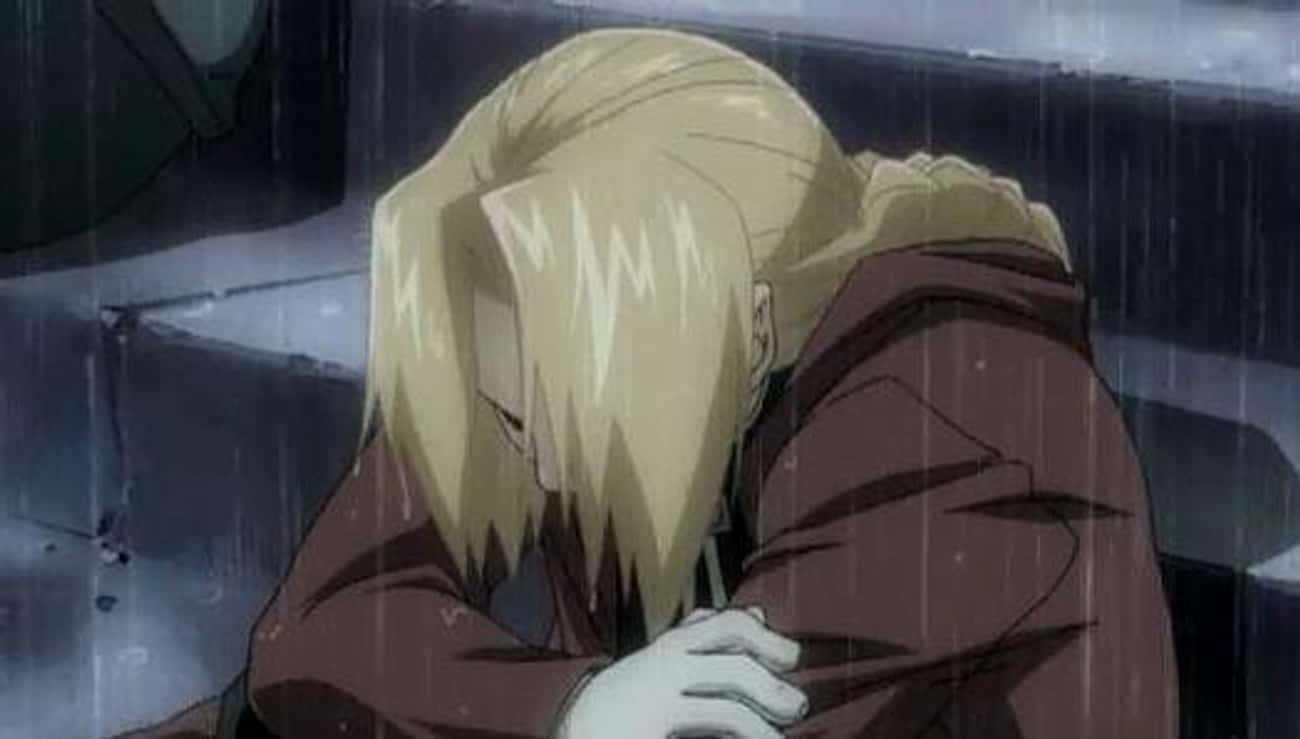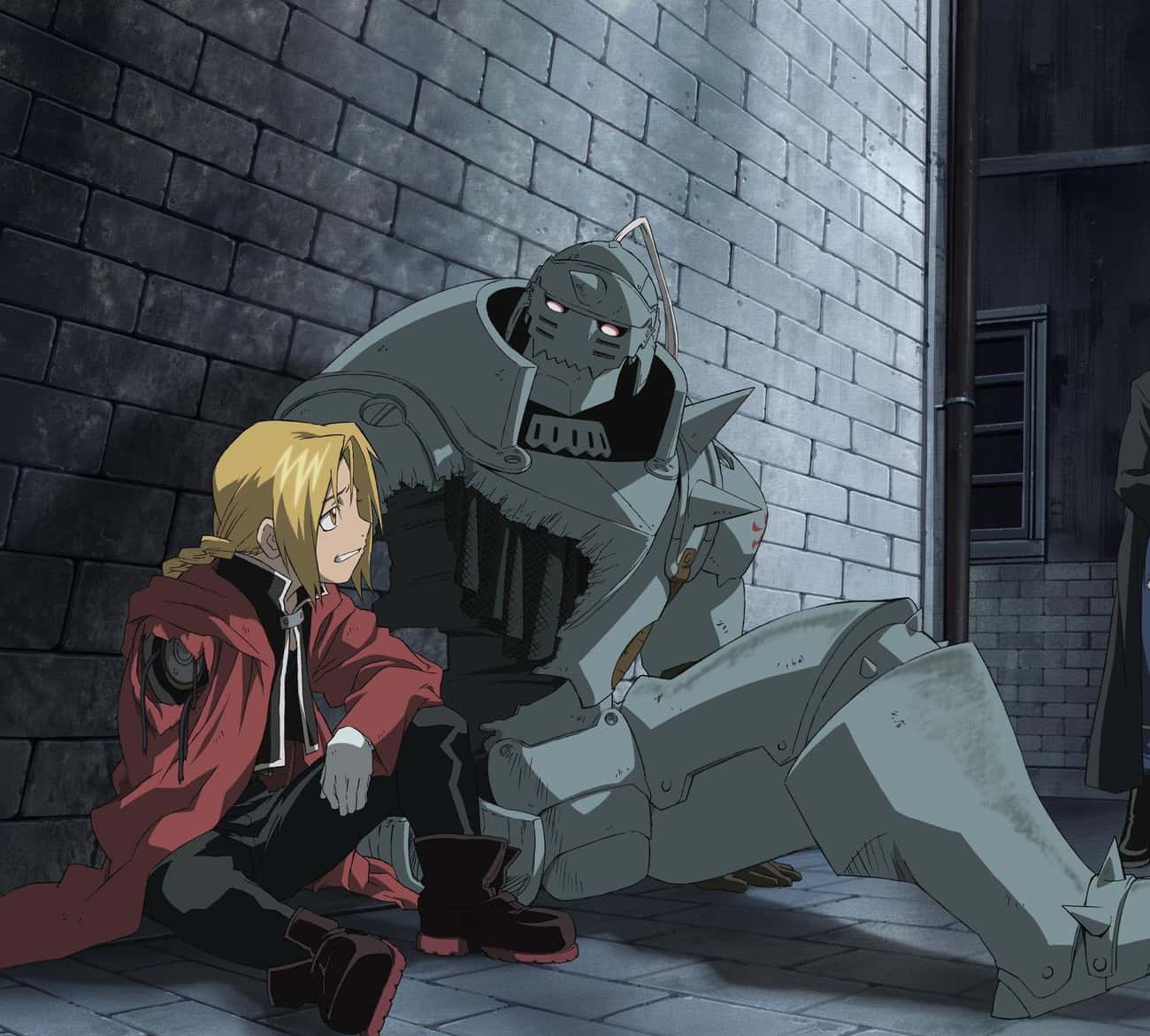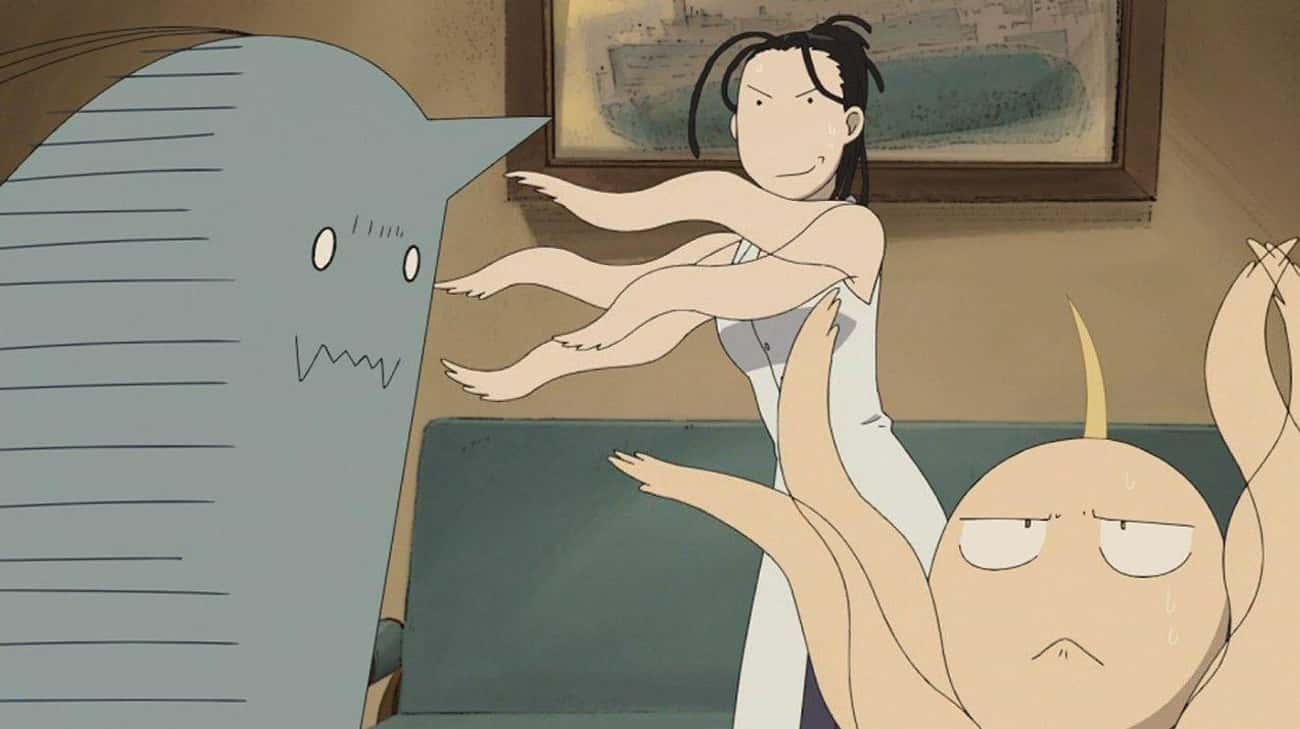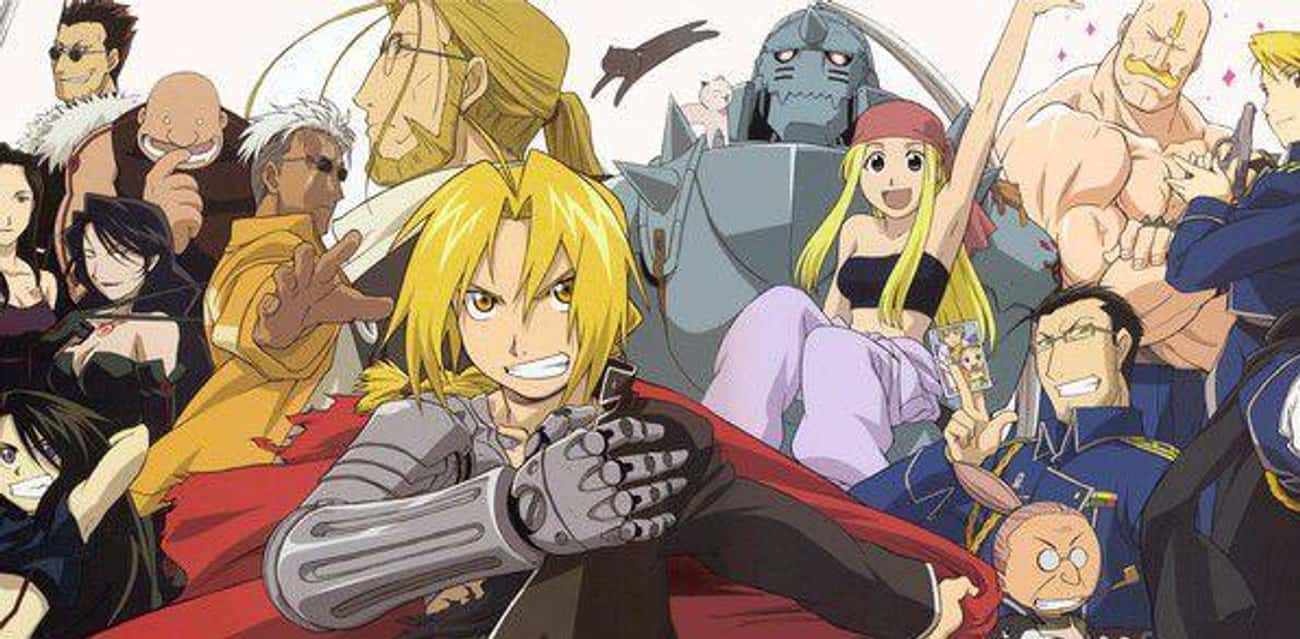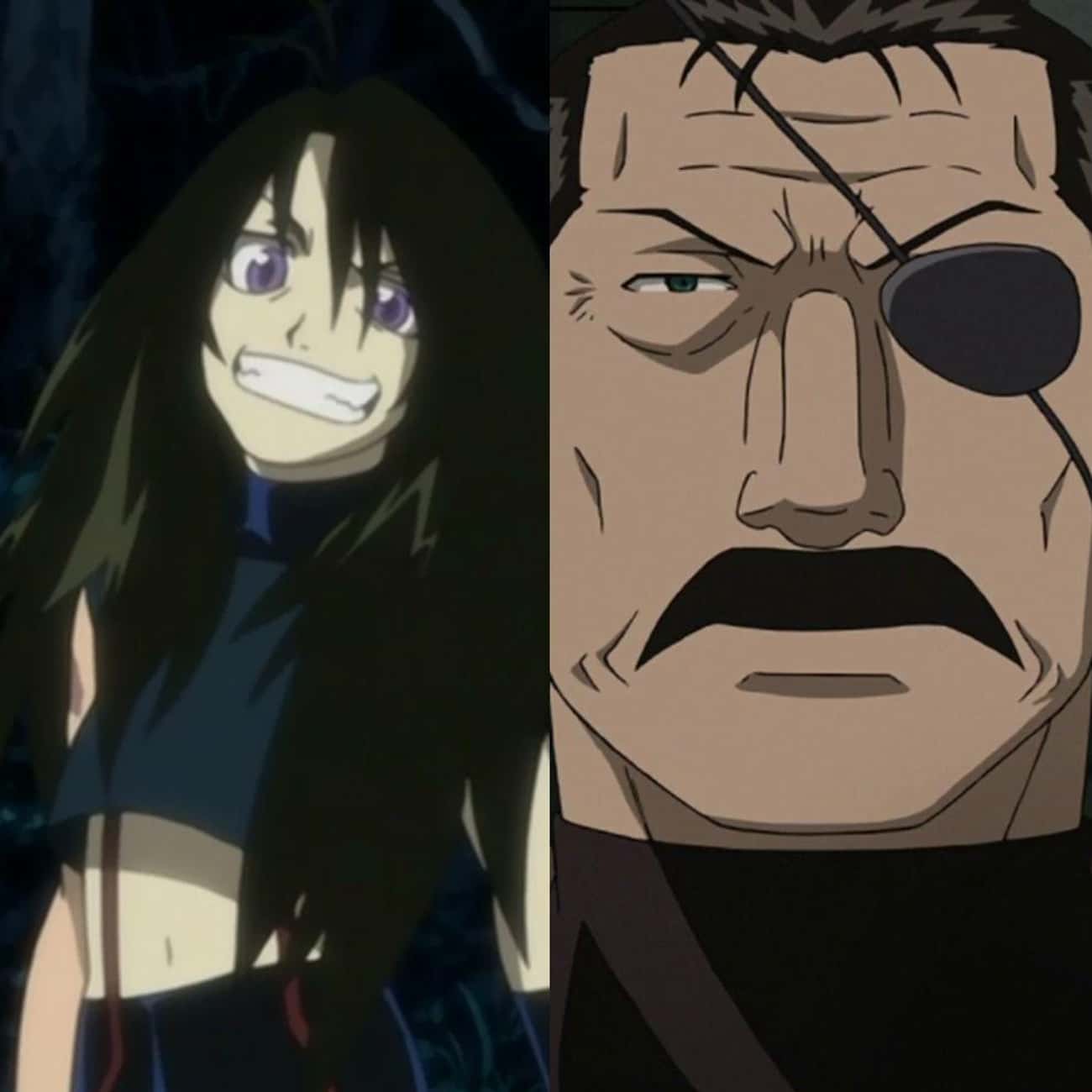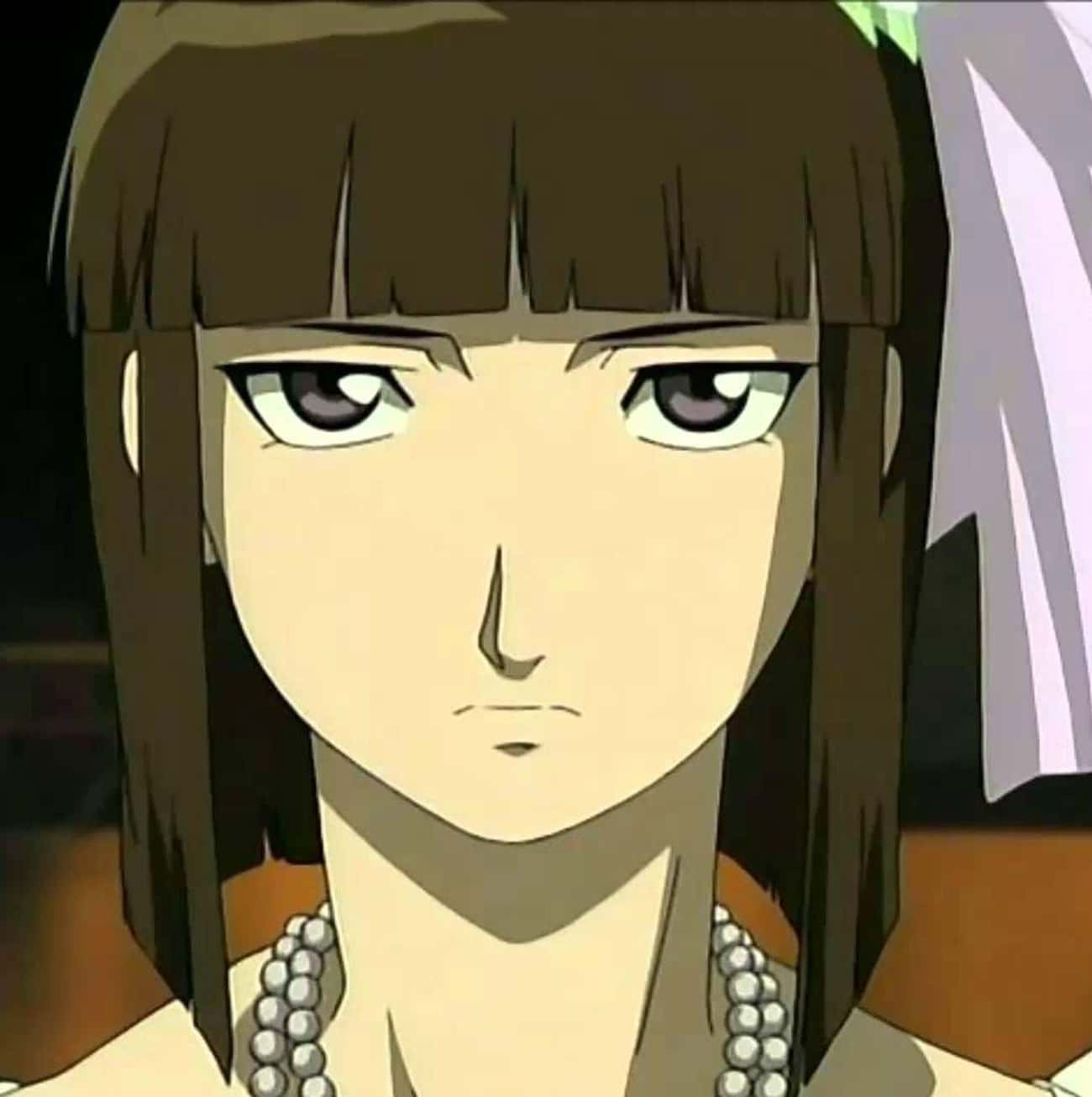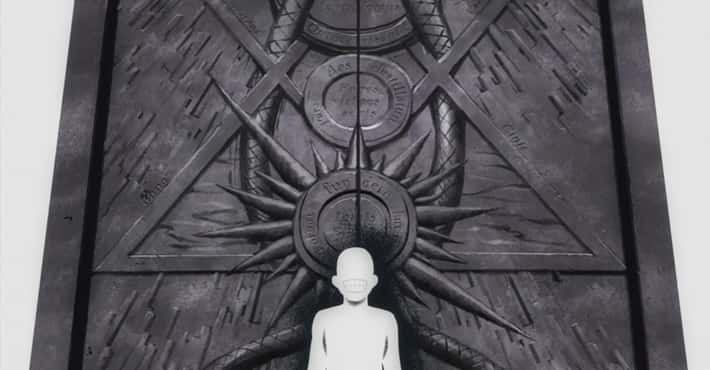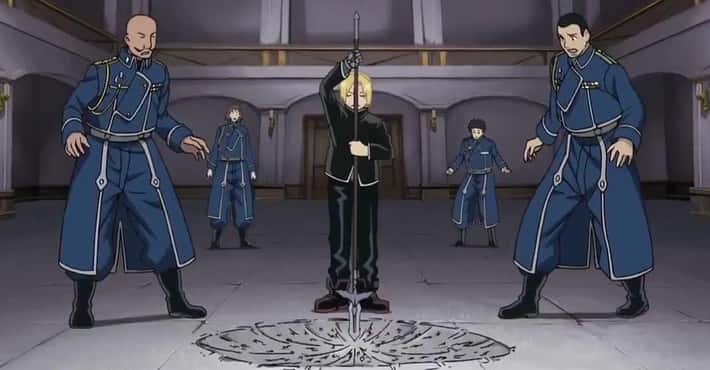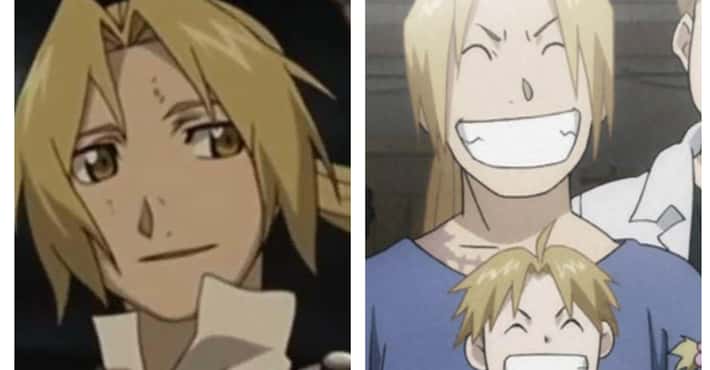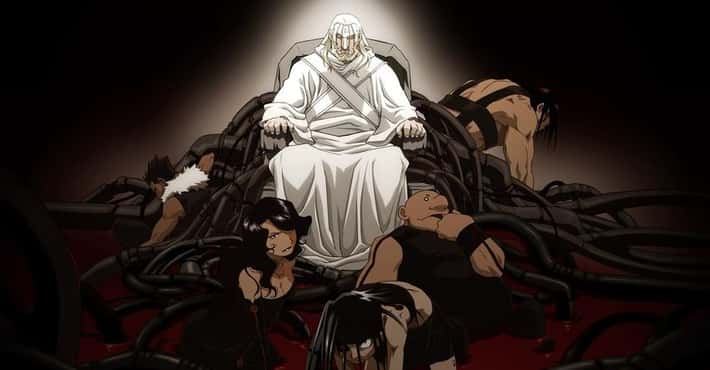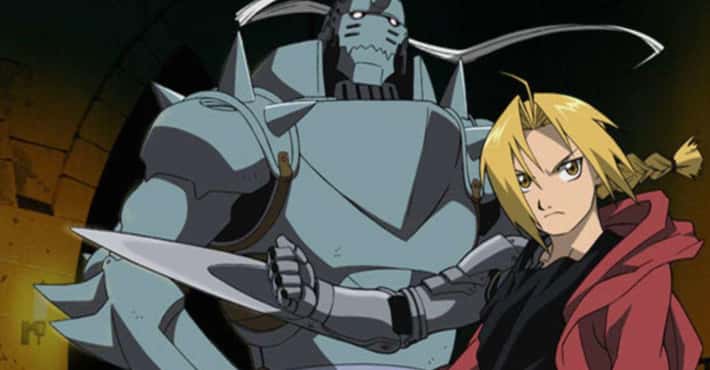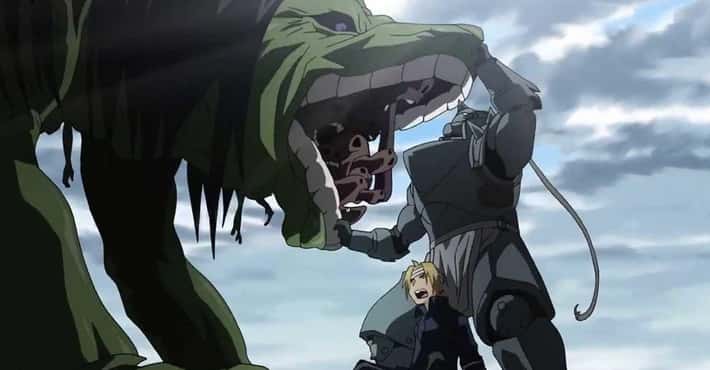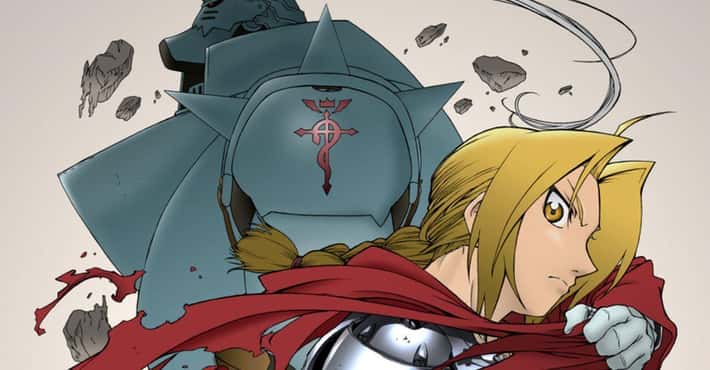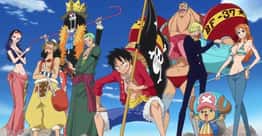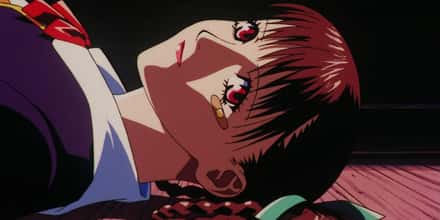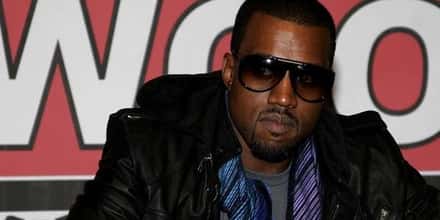15 Reasons Why FMA 2003 Is Better Than FMA Brotherhood
- 12,600 VOTES
Nina Tucker's Relationship With The Elric Brothers Is Explored In FMA
Photo: BonesThe early episodes of Brotherhood were rushed out to make way for more content from the manga. While understandable, it means that memorable scenes from the original anime do not have the same emotional impact in Brotherhood.
A fine example of this is the story arc of Nina Tucker, the four-year-old girl who becomes the guinea pig for her father’s chimera experiment. The 2003 version builds up the girl's relationship with the Elric brothers over three episodes. Brotherhood, on the other hand, tries to wrap the whole thing up in one episode. The moment of loss in Brotherhood simply doesn't have the same effect as it does in the 2003 version.
- 22,342 VOTES
Lust’s Character Arc Is More Developed In The Original Series
Photo: BonesAs mentioned in the list of sympathetic anime villains you can’t help but feel sorry for, the tragic 2003 anime version of Lust is a far more compelling character to watch than her Brotherhood counterpart.
In the original anime, there is a lot to chew on with Lust: Her relationship with the Elric brothers, the estrange yet emotional confrontation with Scar, and her decision to defect from Dante and her fellow Homunculus. In comparison, the Brotherhood version of Lust is just a sexy evil woman.
- 32,373 VOTES
The Death Of Hughes Isn't As Emotional In Brotherhood
Photo: BonesAnother powerful moment lost in Brotherhood is the passing of beloved character Maes Hughes – the Amestrian State Military officer who was extremely devoted to his wife and little girl. While the depiction of Hughes's demise in Brotherhood is far from insipid, the 2003 anime is able to deliver a stronger emotional impact due to the character having more screen time.
Ed’s reaction towards Hughes's passing is also stronger in the 2003 anime, as he has to be physically restrained by Winry and Sheska after hearing the awful news.
- 42,291 VOTES
The Homunculus Backstory Is More Interesting
Photo: BonesThe origin story behind the Homunculus in the 2003 series is far more interesting than Brotherhood's retelling. In the original anime, the Homunculus are the horrible aftermath of Human Transmutation. In the case of Ed and Al, their Human Transmutation results in Sloth, a Homunculus who appears similar to their mom but lacks her heart and soul.
Using the Homunculus as a painful reminder to those who play God is a brilliant storytelling move. In comparison, the Homunculus in the 2009 anime are just the human vices that Father separated from his body years ago.
- 52,048 VOTES
Sloth Offers A Compelling Dynamic In FMA
Photo: BonesAmong the most significant differences between the 2003 anime and Brotherhood are the depictions of certain Homunculus. Sloth, for example, is a vastly different character in Brotherhood than the original anime. Brotherhood sticks to the manga version by making Sloth a cliché "muscle man" who always complains about doing work. The 2003 anime, however, portrays Sloth as a failed Human Transmutation of Ed and Al’s mom.
Female Sloth brings a fascinating angle to the 2003 anime as she is a physical manifestation of Ed and Al’s past sin.
- 61,794 VOTES
FMA Plays Up The Mystery Aspect
Photo: BonesWhat makes Fullmetal Alchemist so engaging to watch is the constant mystery behind the Philosopher's Stone and the politics behind its creation. Both the 2003 and 2009 versions of the anime delve into grey areas, yet, as Brotherhood goes along, the story becomes disappointingly more black and white.
The line between good guys and bad guys is made crystal clear; leaving no room for moral ambiguity. As a result, Brotherhood isn’t as suspenseful as the 2003 anime, which constantly questions the action of its characters and alludes to the inhuman creation of the Philosopher's Stone.
- 71,741 VOTES
Questioning Humanity Is A Major Theme In FMA
Photo: BonesOne of the most captivating themes of the Fullmetal Alchemist series is its questioning of human morality. It doesn't just examine the actions of the military, but the Elric brothers as well. It not only has moments that highlight the frailty of its young protagonists, but FMA argues the rights and wrongs of killing those born from a alchemist’s failed attempt at playing God.
Brotherhood isn’t devoid of these notes, but it never fully explores the grey areas these subject matters provide.
- 81,869 VOTES
FMA Has Better Pacing
Photo: BonesIf there’s one thing most Fullmetal Alchemist fans can agree on, it’s that the early episodes of the 2003 anime were paced more diligently than the 2009 anime. Brotherhood writers wanted to get to the material the 2003 anime didn't by speeding through the stories everyone already saw. However, the results are somewhat varied.
Key moments in the early run of the series don't carry the same emotional weight in Brotherhood as they did in the 2003 anime. Not to mention, the assumption that everyone had seen the 2003 anime gives Brotherhood a niche appeal. To put it simply, the 2003 anime is a standalone, accessible show, while Brotherhood gives off a “for the fans only” vibe.
- 92,047 VOTES
There Is A Maturity To FMA, While Brotherhood Feels Like A Shounen Series
Photo: BonesThe original Fullmetal Alchemist anime and Brotherhood deal with heavy subject matter, such as politics and the value of life. In the 2003 anime series, however, there’s an air of maturity to these scenes. Moments of bleakness are allowed to linger on; successfully creating a mature atmosphere.
In comparison, Brotherhood comes across as a typical shounen that forcefully interjects comedy to relieve the series of any somber moments. In other words, the 2003 series is a drama, while Brotherhood is an action-adventure romp.
- 101,663 VOTES
The Brother's Dynamic Is Fully Explored In The 2003 Anime
Photo: BonesNo matter which anime you watch, the story of Fullmetal Alchemist will always remain a tale about two brothers trying to look out for each other in a cruel world. In the 2003 anime, the relationship between Edward and Alphonse Elric is extremely personal. Despite their friends from the military or back home, there’s always a sense that Ed and Al are alone on their journey.
Despite their enlistment as State Alchemists, Ed and Al often find themselves in opposition to the military, leaving them no choice but to disobey orders or go out in secrecy. The exploration of their brotherly relationship is on full display in the animated movie, Conqueror of Shamballa, as the brothers desperately try to reunite with each other.
- 111,648 VOTES
FMA's Music Edges Out Brotherhood's
Video: YouTube
The music in Fullmetal Alchemist and Brotherhood is incredible. There’s no doubt about that. However, if one must compare the two, the 2003 anime is arguably more powerful. What makes the music in the 2003 anime better than Brotherhood is its tendency to inspire, while invoking a tragic tone.
A famous example of this is the track “Bratja,” which embodies the emotional hardships of the Elric brothers. “Bratja” likely wouldn't work in Brotherhood, as the series is more optimistic.
- 121,774 VOTES
Brotherhood Relies On Repetitive And Juvenile Jokes
Photo: BonesAs filmmaker Joss Whedon once said, “Make it dark, make it grim, make it tough, but then, for the love of God, tell a joke.” There’s nothing like a little comedy now and then to help lighten the mood, and considering all the dark themes covered in the Fullmetal Alchemist series, it certainly needed it. The problem is, when it comes to Brotherhood, that the comedy is way too prevalent.
The 2003 anime series knows when to throw in a joke without killing the overall dramatic mood, while Brotherhood has a tonal problem early on, as serious scenes are often deflated by repetitive and juvenile jokes.
- 131,708 VOTES
Brotherhood Doesn't Develop Its Characters As Well As The Original
Photo: BonesAs the cast of characters in Brotherhood grows, giving them their proper time to shine becomes a troublesome juggling act. This was especially difficult considering Brotherhood's erratically fast-paced nature of its earlier episodes.
While the 2003 anime never received the complete cast of the manga, it is able to properly balance the ones it has and use them to their fullest.
- 141,611 VOTES
Wrath Is A Complex Villain In FMA
Photo: BonesWrath’s child-like portrayal in the 2003 anime shares similarities to the manga and Brotherhood's version of Pride, yet he’s not a carbon copy. Before Wrath is introduced, it was easy to dismiss the Homunculus as soulless creatures that deserve destruction.
Seeing a young kid like Wrath yearn for any ounce of maternal love, however, hammered in the morality of the Homunculus.
- 151,953 VOTES
Dante Is A Better Final Villain
Photo: BonesAdmit it, Dante fills the role as the final villain better than Father did in Brotherhood. True, Father was always meant to be the final boss (as far as the manga was concerned), however, the God Complex agenda that consumed Father isn't very different from other bad guys hungry for ultimate power.
Dante, on the other hand, is more sinister in her actions and her lust for immortal life complemented the series’s theme of what it means to be alive. Her ability to intimidate isn’t measured by her strength, but by her wit. Dante’s actions doesn't just jeopardize the lives of the Elric brothers, but their morality as well. She’s easily one of the most underrated anime villains out there.


